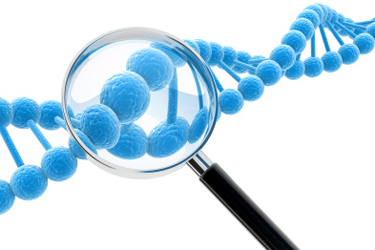
According to Wikipedia biosimilar (also known as follow-on biologic or subsequent entry biologic) is a biologic medical product that is almost an identical copy of an original product that is manufactured by a different company. The EMA defines biosimilar as a biological medicine highly similar to another already approved biological medicine (the 'reference medicine'). Biosimilars are approved according to the same standards of pharmaceutical quality, safety and efficacy that apply to all biological medicines. Biosimilars are officially approved versions of original "innovator" products and can be manufactured when the original product's patent expires. Reference to the innovator product is an integral component of the approval. Unlike with generic drugs of the more common small-molecule type, biologics generally exhibit high molecular complexity and may be quite sensitive to changes in manufacturing processes. Despite that heterogeneity, all biopharmaceuticals, including biosimilars, must maintain consistent quality and clinical performance throughout their lifecycle. Follow-on manufacturers do not have access to the originator's molecular clone and original cell bank, to the exact fermentation and purification process, or to the active drug substance, but they have access to the commercialized innovator product. Overall, it is harder to ascertain fungibility between generics and innovators among biologics than it is among totally synthesized and semisynthesized drugs. That is why the name "biosimilar" was coined to differentiate them from small-molecule generics. A simple analogy, often used to explain the difference, is to compare wine with soda pop. It is harder to say objectively that two bottles of wine from two wineries are "sufficiently interchangeable," because of differences in yeast strain, weather, and year of grape harvest, than it is to say that two bottles of soda pop of the same flavor coming from two bottling plants are "sufficiently interchangeable" because they contain the same flavoring powder. Drug-related authorities such as the EU's European Medicines Agency (EMA), the US's Food and Drug Administration (FDA) hold their own guidance on requirements for demonstration of the similar nature of two biological products in terms of safety and efficacy. According to them, analytical studies demonstrate that the biological product is highly similar to the reference product, despite minor differences in clinically inactive components, animal studies (including the assessment of toxicity), and a clinical study or studies (including the assessment of immunogenicity and pharmacokinetics or pharmacodynamics). They are sufficient to demonstrate safety, purity, and potency in one or more appropriate conditions of use for which the reference product is licensed and is intended to be used and for which licensure is sought for the biological product. Market share The legal requirements of approval pathways, together with the costly manufacturing processes, escalates the developing costs for biosimilars that could be between $75–$250 million per molecule. This market entry barrier affects not only the companies willing to produce them but could also delay availability of inexpensive alternatives for public healthcare institutions that subsidize treatment for their patients. Even though the biosimilars market is rising, the price drop for biological drugs at risk of patent expiration will not be as great as for other generic drugs; in fact it has been estimated that the price for biosimilar products will be 65%-85% of their originators. Biosimilars are drawing market's attention since there is an upcoming patent cliff, which will put nearly 36% of the $140 billion market for biologic drugs at risk (as of 2011), this considering only the top 10 selling products. The global biosimilars market was $1.3 billion in 2013 and is expected to reach $35 billion by 2020 driven by the patent expiration of additional ten blockbuster biologic drugs. By Aliyev F. References https://en.wikipedia.org/wiki/Biosimilar "EMEA Guideline on Similar Biological Medicinal Products", CHMP/437/04 London, 30 October 2005. "FDA page on "FDA approves first biosimilar product Zarxio". World Health Organization, INN and Biologicals, retrieved 2016-08-05.
If this page is in your subscriptions, then it will be removed. You will not see this page. If you want to unblock a user, go to the settings, the list of blocked users and click unblock